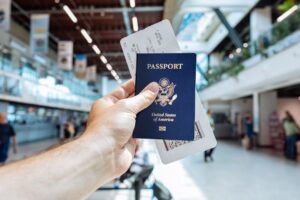Investing in Brazil offers promising opportunities, but navigating the investor visa process can be daunting. Many potential investors face confusion around eligibility, investment requirements, and the complex legal landscape. Without clear guidance, the path to securing Brazilian residency may seem overwhelming and fraught with risks.
Understanding the intricacies of the investor visa is crucial to avoid costly mistakes and delays. This comprehensive guide will demystify the process, outlining each step, highlighting common pitfalls, and explaining how you can confidently achieve your residency goals with expert support.
By the end, you will have a clear roadmap tailored to investors, enabling you to make informed decisions and smoothly transition to life and business in Brazil.
Understanding the Brazil Investor Visa
The investor visa in Brazil is designed to attract foreign capital by granting residency rights to those who make qualifying investments. Understanding the visa types, eligibility criteria, and investment requirements is the foundation of a successful application.
- Types of Investor Visas: Brazil offers specific visas for business investors and real estate investors, each with distinct requirements.
- Eligibility Criteria: Applicants must demonstrate a genuine investment that contributes to the Brazilian economy, meet legal standards, and provide all necessary documentation.
- Investment Thresholds: While exact values vary, investments must meet minimum levels established by immigration authorities, differing by sector and investment type.
- Family Inclusion: Investor visas often allow applicants to include immediate family members, granting them residency rights as well.
Knowing these basics helps investors align their plans with legal expectations and prepare thoroughly for the application.
Step-by-Step Investor Visa Application Process
Securing a Brazil investor visa involves a multi-phase process that requires careful preparation and compliance with legal procedures. Following a structured approach reduces risks and expedites approval.
- Step 1: Investment Planning and Proof – Define your investment type (business or real estate) and prepare documentation proving the capital transfer and investment legitimacy.
- Step 2: Documentation Preparation – Collect essential documents such as valid passports, proof of investment, criminal background checks, and authenticated translations.
- Step 3: Submission to Brazilian Authorities – File your application with the Ministry of Justice or Brazilian consulate, including all required paperwork and fees.
- Step 4: Monitoring and Response – Respond promptly to any requests for additional information or clarifications from immigration officials.
- Step 5: Visa Issuance and Residency Registration – Once approved, obtain your visa and register with the Federal Police to receive your permanent residency card.
Attention to detail and timely responses throughout these stages are key to a smooth process.
Outvisa’s team of certified Brazilian immigration lawyers can assist in each phase, ensuring your documentation meets legal standards and deadlines are respected.
Risks and Challenges in the Investor Visa Process
Investing and applying for residency in Brazil comes with inherent risks that require caution and expertise to navigate.
- Incorrect Documentation: Missing or improperly authenticated documents can delay or jeopardize your application.
- Investment Non-Compliance: Investments not meeting legal thresholds or lacking economic impact may result in visa denial.
- Legal and Financial Risks: Unclear understanding of Brazilian tax laws and investment regulations can expose investors to penalties.
- Timeline Uncertainty: Processing times vary, and failure to meet deadlines can complicate your status.
Mitigating these risks involves thorough preparation, legal consultation, and ongoing compliance monitoring.
For authoritative information, consult official resources such as the Brazilian Government Visa Portal.
Residency and Citizenship Pathways for Investors
Obtaining an investor visa is the first step toward permanent residency and potential citizenship in Brazil. Understanding your rights and the pathway options is essential for long-term planning.
- Permanent Residency Rights: Investor visa holders gain the right to live, work, and conduct business in Brazil with many protections similar to citizens.
- Family Rights: Residency can be extended to spouses and dependents, fostering family unity during your stay.
- Pathway to Citizenship: After fulfilling residency requirements and legal conditions, investors may apply for naturalization, gaining full citizenship rights.
- Differences Between Residency and Citizenship: Residency allows legal stay and work, while citizenship provides voting rights and a Brazilian passport.
Planning your investment with these pathways in mind ensures a strategic approach to your future in Brazil.
Outvisa provides expert guidance on dual citizenship applications and legal compliance throughout residency.
Tips and Checklist for a Successful Investor Visa Application
- Verify investment type and ensure it meets Brazilian immigration requirements.
- Gather all required documentation early, including authenticated translations and certifications.
- Consult with certified immigration lawyers to review your application before submission.
- Maintain clear records of all financial transactions related to your investment.
- Respond promptly to requests from immigration authorities to avoid delays.
- Understand your rights and obligations as a resident investor to maintain compliance.
Frequently Asked Questions
What types of investments qualify for the Brazil investor visa?
Qualified investments typically include business ventures that generate economic activity and real estate investments that meet minimum thresholds. Each category has specific legal requirements that must be met to qualify for the investor visa.
Can family members be included in the investor visa application?
Yes, immediate family members such as spouses and dependent children can usually be included in the investor visa application, allowing them to obtain residency rights alongside the primary investor.
What are the common reasons for investor visa application rejection?
Common causes include incomplete or incorrect documentation, failure to meet investment thresholds, lack of proof of economic benefit, and non-compliance with legal procedures. Expert legal support helps minimize these risks.
How long does the investor visa process typically take?
Processing times vary depending on the complexity of the investment and the applicant’s compliance with documentation requirements. Staying organized and working with experienced legal advisors can help ensure timely processing.
What are the benefits of permanent residency versus citizenship for investors?
Permanent residency grants the right to live and work in Brazil, while citizenship offers additional rights such as voting and obtaining a Brazilian passport. Investors should plan their pathway based on their long-term goals.
Conclusion
Securing a Brazil investor visa requires careful planning, understanding of complex legal requirements, and awareness of potential risks. This guide has provided a detailed roadmap to help investors confidently navigate the process, from initial investment planning through residency and citizenship pathways.
Outvisa’s team of certified Brazilian lawyers offers personalized support throughout your investor visa journey, ensuring legal compliance and increasing your chances of success.
Reach out to us for personalized consultation based on your specific requirements.







